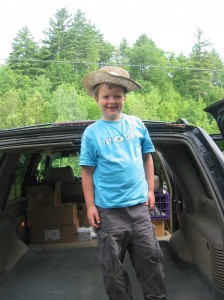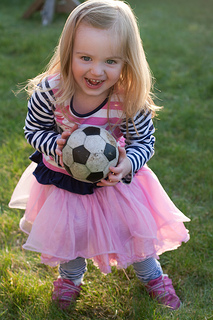Today’s guest author is my 16-year-old “bonus son” who has spent another summer with us, creating more new “family stories and legends.”

My name is Luis. I am half-German and half-American. I grew up in Berlin, Germany and, of course, spoke only German. Even though my Dad speaks only English, we had good visits when I was growing up: I got to see his world in the U.S. and he got to see some of Berlin. We had a strong connection but no direct, untranslated verbal communication.
Like all kids in Berlin, I started learning English in the 3rd grade. I never felt like being lazy about it. I wanted to communicate directly with my Dad. Even though I had not yet met all of them, knowing that I had a large, extended American family gave me even more motivation and discipline.
[Tweet “My desire to know my American family has been important in developing my love of language.”]
Learning a new language meant — and still means — entering a whole new world. All the experiences that come with being immersed in another culture become both easier and more intense.
My extended American family did not know me either and they did not help with my actual studies but the desire to know them has been important in developing my love of language. I am in the 11th grade and, in addition to English, am learning three more languages.
Languages are the doors to new cultures and their people… vacations and their unique experiences and special moments. These things can become knowledge and wisdom… family stories and legends. Coming to America each summer improves my English and deepens my connection to this part of my family and my American roots.
Now when we spend time together I’m as likely as anyone to start the flood of family stories by saying, “Remember the time….”
[Tweet “These things can become knowledge & wisdom, family stories & legends.”]










